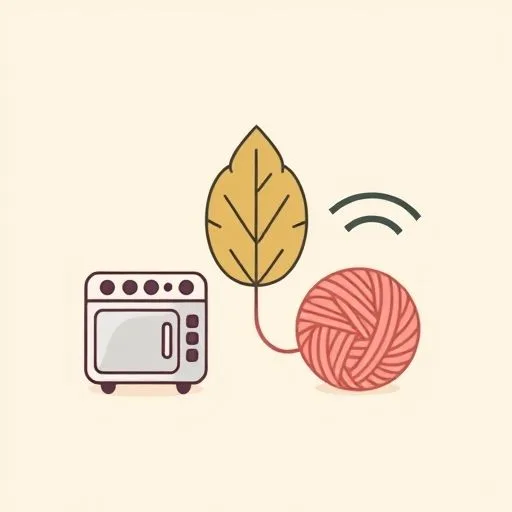
Picture this: 2 a.m., and your child whispers, ‘Why don’t satellites fall?’ Your brain’s foggy—you’re clueless too. But what you see isn’t frustration in her eyes. It’s that spark of pure curiosity. We’ve all been there as parents. That’s where the real magic begins—not in having answers, but in the quiet courage to explore together. Because sometimes the best ‘answer’ isn’t a fact—it’s a shared sigh, a Lego rocket built at midnight, and the warmth of knowing you’re not alone in this. Let’s turn cluelessness into connection.
Why ‘I Don’t Know’ is Your Secret Superpower

You know that moment when your kid turns dinner into a rocket launch? Pure magic. And when they ask if the fridge could water plants? It’s not a test—it’s an invitation to wonder together. That pressure to have all the answers just melts away when you take a breath and say, ‘Honestly, I don’t know either. Let’s figure it out!’ Suddenly, panic transforms into play.
We’ve watched her carry so much—the midnight questions, the invisible load. But in that ‘I don’t know’ moment, something beautiful happens. She’s not failing; she’s teaching resilience. Like when your little one wonders if robots dream… do you hug them first or Google it? Both, probably. But that hug? It says ‘I’m here.’ That’s the quiet strength we see in moms daily—they show up exhausted but present, because connection matters more than perfect answers.
And you know what? Those ‘why?’ questions multiply like rabbits. ‘If satellites float, does my tablet have tiny wings?’ But instead of dreading them, imagine what happens when you lean in. ‘What do YOU think?’ opens the door to their imagination. And when they light up explaining their ‘fridge robot’ theory? That look—pure magic. It beats any textbook answer because you’re not just giving facts. You’re building trust.
Turning Everyday Moments into Tech Adventures

Cooking dinner becomes a tech lab when your child asks how the oven ‘knows’ it’s hot. No panic needed—just grab playdough and sculpt ‘heat sensors.’ Walking home, when they point at a leaf: ‘Why does it look like a circuit?’ Trace the veins together. Call it nature’s wiring. It’s not about expertise. It’s about honoring their curiosity in the moment.
Ever turned ‘How does Wi-Fi work?’ into a living room experiment? Try it. Use yarn to map ‘invisible signals’ between stuffed animals. They’ll giggle as you ‘beam’ messages. The exhaustion is real—answering satellite questions at 2 a.m. drains you. But that sigh when they solve a puzzle with you? Worth every yawn. Because slowing down to explore cloud patterns or Lego engineering isn’t lost time. It’s how they learn that curiosity is safe.
Moms especially feel this weight—the mental load of constant ‘why’s. But what if we reframe it? Every question is a thread connecting you. When they ask if Siri sleeps, you’re not ‘supposed’ to know. You’re supposed to wonder aloud: ‘Do YOU think she dreams of music?’ Then listen. That pause—where you silence your own worry—is where trust grows deeper than any app ever could.
The Quiet Strength Behind ‘Let’s Find Out’

We often think great parenting means having answers. But the strongest moments come when we don’t. Picture her: eyes heavy at midnight, but smiling as she Googles ‘robot feelings’ with your child. She’s not ‘less than’ for not knowing AI. She’s heroic for showing up anyway. That’s the magic moms carry—they transform ‘I don’t know’ into ‘Let’s discover.’
Why does this matter more than rushing? Because in those slow explorations—building a Lego watering machine, staring at moon craters on YouTube—the real lesson takes root. ‘Your curiosity,’ you’re telling them, ‘is worth my tired time.’ They’ll hold onto that feeling long after they’ve grown: when life gets complex, they’ll remember how wonder felt safe with you.
Think of those tiny victories: the high-five when their ‘data collector’ (a cereal box with stickers) ‘measures’ rain, or the hug when Siri can’t answer their poem question. These aren’t small things. They’re echoes of love saying, ‘I see you.’ And when your child sighs, ‘But what if robots COULD dream?’ before bed—you’re ready. Not with a textbook reply, but with, ‘Tell me your idea.’ That space you create? Where their thoughts bloom? That’s the invisible work we miss—the quiet courage of moms who trade panic for presence.
The greatest tech tool you have isn’t in your pocket. It’s the connection you build right there, in the messy, glorious space of ‘I don’t know.’
So next time your kid asks how phones ‘see’ faces, take a breath. Say, ‘Wow, me too—I wonder!’ Then watch their eyes widen. Because that moment? It echoes forever…
Source: McKinsey Breaks Down 13 Tech Trends For The Year Ahead, Forbes, 2025/09/12 01:26:09
